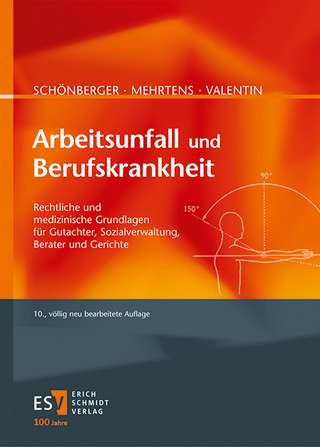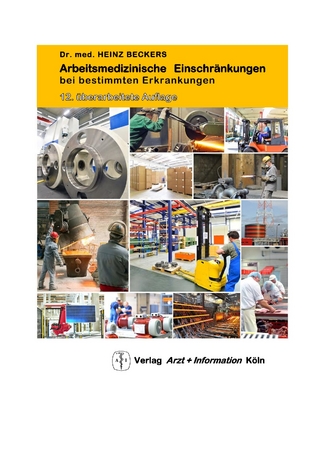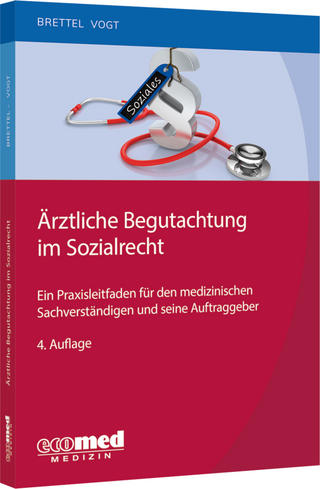
Biomedical Waste Management in the COVID-19 Era
Elsevier - Health Sciences Division (Verlag)
978-0-443-21841-5 (ISBN)
- Noch nicht erschienen (ca. November 2025)
- Versandkostenfrei innerhalb Deutschlands
- Auch auf Rechnung
- Verfügbarkeit in der Filiale vor Ort prüfen
- Artikel merken
Dr. Vivek Kumar Morya is currently working as Assistant Professor at Department of Biological Engineering, Inha University, South Korea. He has completed his MSc and PhD in Biotechnology from Deen Dayal Upadhyay Gorakhpur University, Gorakhpur, India and Post-Doctoral Fellow at Inha University, Korea. Previously he was appointed as Junior Research Fellow, and Senior Research Fellow at SIR, New Delhi, worked at DDU Gorakhpur University, and Assistant Professor at SHIATS, Allahabad. He is life member of Korean Society of Biotechnology and Bioengineering, Biotech Research Society of India, European federation of Biotechnology, Biotechnology federation of Asia, Ireland Biotechnology, Aspergillus Web Society, Aspergillus trust online, Society of Mycology and Plant Pathology, Bio-informatics Society of India, EEIU, member of American Chemical Society and annual member of Indian Phytopathology Society of India. He is member of editorial board for 18 journals. He has published 4 book chapters, 36 research articles in journals, and 5 patents contributed as author/co-author. Raj Morya is currently a postdoctoral researcher at Yonsei University, Seoul, South Korea. His skills and expertise include Biomaterials, Nanocomposites, Bioelectrochemistry, Nanomaterials, Immobilization, Polymers, Nanobiotechnology, Biofuels, Biodiesel Production, Lignin. Dr. Abhay Raj is currently as Principal Scientist at CSIR-Indian Institute of Toxicology Research, Lucknow India. His R&D work focused mainly on development of microbial process for bioremediation of the industrial wastewaters mainly pulp and paper, tannery, and textile industries. His team had primarily engaged on screening and evaluation of bacterial strains for ligninolytic enzymes (LiP & Lac), basic mechanisms behind treatment and changes in the paper mill effluent toxicity after treatment. The developed bacterial consortium is being used to evaluate their feasibility for the treatment of pulp and paper mill effluent on bioreactor in an industrial set-up. Also, we are using bacterial biofilm approach to improve the tannery effluent treatment process. Abhay Raj is also working on development of an eco-friendly pulp bio-bleaching combination for application in paper industry. He is also working on the biochar technology for environmental remediation. Dr. Sunil Kumar is a well-rounded researcher with more than 20 years of experience in leading, supervising and undertaking research in the broader field of Environmental Engineering and Science with focus on Solid and Hazardous Waste Management. He has contributed extensively to these fields and has h-index of 30 and i10-index of 43 (Google scholar); highly impressive for a non-academic researcher from India. His contributions since inception at CSIR-NEERI in 200 include 130 refereed journal publications, 04 books and 25 book chapters, 08 Edited volumes and numerous project reports to various governmental and private, local and International academic /research bodies. The list of his collaborations is long and includes key Indian universities, such as IIT Kharagpur, IIT Delhi and IIT Mumbai and prestigious regional institutes, such as Asian Institute of Technology (AIT) and Kasetsart University in Bangkok, Hong Baptist University as well as universities in US (Columbia, Texas A&M) and Europe (UN University and University of Uppsala).
1. The composition and characterization of COVID-19 biomedical waste: Potential risks of biomedical waste (human health, environment sustainability)
2. Risk assessment and degree of resiliency of bio-medical waste management systems for pandemics like COVID-19
3. Change in Bio-medical Waste dynamics: an OECD perspectives
4. Case study of COVID-19 waste management in different continents of the world
5. Bio-medical waste burden and management strategies in Southeast Asian countries: Lessons learned from OECD countries
6. Low, middle-income countries: environmental sustainability and impact with health implications
7. The boom in production of protective gears (PPE kits, masks, gloves, shields, sanitizer etc.)
8. Future of health care systems and sustainability in bio-medical waste management
9. Science, technology, and innovation (STI) approach for sustainable waste management
10. Application of automation and artificial intelligence in handling biomedical waste
11. Legal and policy framework to cope with pandemics: success and failures
12. Innovations and start-ups bloom during the pandemic to handle biomedical waste
| Erscheint lt. Verlag | 1.11.2025 |
|---|---|
| Reihe/Serie | Waste And The Environment: Underlying Burdens And Management Strategies |
| Verlagsort | Philadelphia |
| Sprache | englisch |
| Maße | 191 x 235 mm |
| Themenwelt | Medizin / Pharmazie ► Medizinische Fachgebiete ► Arbeits- / Sozial- / Umweltmedizin |
| Naturwissenschaften ► Biologie ► Ökologie / Naturschutz | |
| Technik ► Umwelttechnik / Biotechnologie | |
| ISBN-10 | 0-443-21841-2 / 0443218412 |
| ISBN-13 | 978-0-443-21841-5 / 9780443218415 |
| Zustand | Neuware |
| Haben Sie eine Frage zum Produkt? |
aus dem Bereich


